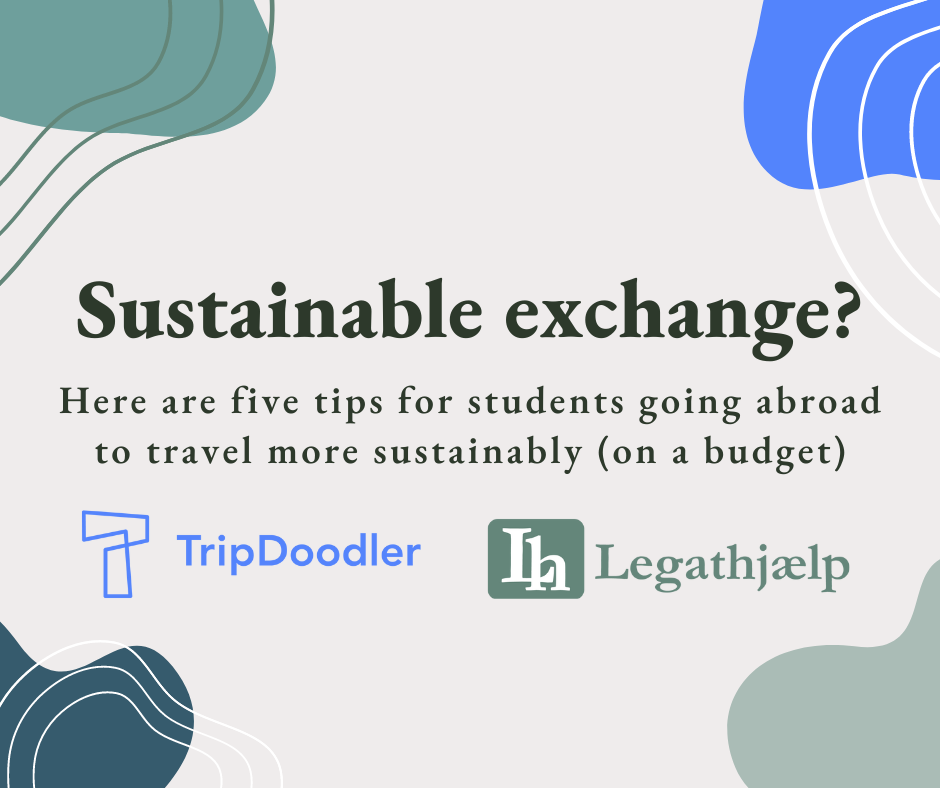Five tips for students going abroad to travel more sustainably (on a budget)

International travel for students can be a life-changing experience! It broadens horizons, deepens cultural sensitivity, enriches education, and opens doors to new opportunities. While traveling abroad can bring many benefits, it also has the potential to impact the environment, social dimension, and local economy in both positive and negative ways. Take international flights, for example.
Traveling by plane is a significant contributor to carbon emissions (they account for more than 2% of global carbon dioxide emissions - IATA), and unfortunately, it may not always be possible for students going abroad to avoid it entirely. While global scholars like you have to travel long distances by plane inevitably, here are some easy-to-follow tips and tricks that will help you make more sustainable choices during your stay abroad (without spending a lot of money):
- Go for food rescue platforms: By rescuing food that would otherwise be wasted, platforms like Too Good To Go or ResQ Club promote sustainable food practices by connecting businesses with customers interested in purchasing surplus food, typically at discounted prices. Cheap, appetizing food with a pinch of positive contribution - Yes, please!
- Cling to a reusable water bottle: Instead of purchasing dozens of single-use plastic water bottles, show up with a refillable water bottle at places you will visit and fill it up at water fountains or refill stations around you. By making this small change, you can help to reduce your environmental impact and save money.
- Use public transportation to hop around: A cheap, social, safer, and more convenient way to travel that produces fewer greenhouse gas emissions per passenger than private vehicles. Keep an eye out for public transport passes for longer stays; they are even cost-effective.
- Shop from second-hand stores: By buying second-hand items, we extend their lifespan and prevent them from ending up in a landfill. This reduces the demand for new products and helps to conserve resources. Amazingly, second-hand shopping options are typically unique (like local, vintage, or one-of-a-kind items) and considerably affordable.
- Acknowledge the good travel practices: Found a place that communicates about its sustainability initiatives like food-saving efforts, water refilling capacity, or its proximity to public transport? When you acknowledge such sustainability initiatives on platforms like TripDoodler, you help businesses understand how sustainability is perceived and encourage them to start communicating more. Making it easier for the next traveler to find, and the circle is complete!
TripDoodler is here to help! Start your sustainability journey today: https://app.tripdoodler.com/


